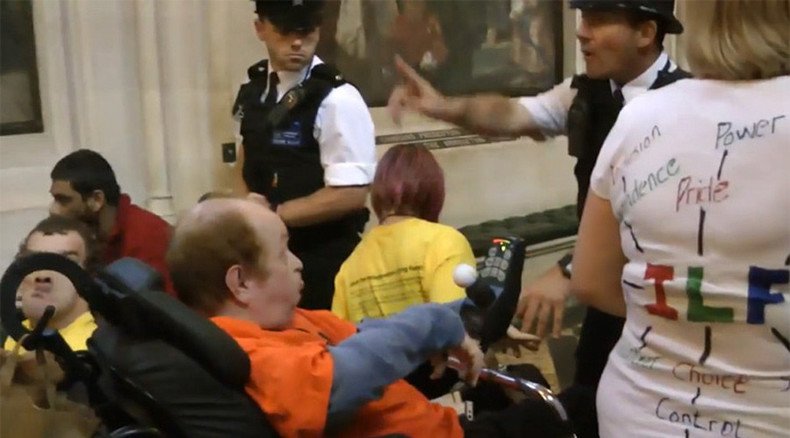‘Disability rights in UK could be violated’ by welfare reforms, UN to investigate

United Nations officials are to visit the UK to investigate whether the government’s controversial welfare reforms are committing “grave violations” of disabled peoples’ human rights.
A Scottish disability charity said it had been contacted by the UN’s Committee on the Rights of Persons with Disabilities as part of an inquiry into Britain’s treatment of disabled people.
Inclusion Scotland, a consortium of disability organizations in Scotland, revealed UN officials were preparing for a trip to the UK this year.
UN investigations are conducted confidentially and so the organization will not confirm or deny whether the inquiry is taking place.
Inclusion Scotland’s Director of Policy Bill Scott said: “The UN have notified us they will be visiting Britain to investigate … and want to meet with us when they come, sometime in the next few months.”
Work and Pensions Secretary Iain Duncan Smith has come under fire for implementing draconian policies that force disabled benefit claimants to prove they are unable to work.
In a recent example, a severely disabled man in Glasgow was told he must fill out a 20-page Work Capability Assessment (WCA) and return it to the Department of Work and Pensions (DWP).
Stuart Chester, 25, suffers from Down’s syndrome, epilepsy and autism and is unable to speak or read.
Stuart’s mother, Deborah McKenzie, told the Daily Record she tried to complain to the DWP.
“I was really upset when the form came through the door.
“I called up the DWP and asked them why they would send it out to someone like my son when he is supposed to get DLA for life and they told me it was tough luck, that it’s just the way it is and I would just need to fill out the form for him just like everyone else.”
The DWP revealed last week that 2,380 people died within six weeks of being declared “fit to work” by the government between 2011 and 2014.
The data, obtained through Freedom of Information requests, found that during the same time period, 50,580 recipients of employment and support allowance benefit (ESA) had died within 14 days of their claim ending.
Campaigners have said the WCA must be overhauled because it is not an accurate way of measuring an individual’s capacity to work.
Critics accepted it was important to treat these figures with caution. They do not state cause of death, meaning it is impossible to see whether the deaths were a direct result of an incorrect assessment.
The government’s policy of suspending claimants’ benefits payments has also come under fire in recent months, with the Social Security Advisor Committee (SSAC) insisting in July the policy must be stopped.
Introduced under Duncan Smith’s guidance in 2012, the policy can leave financially struggling claimants without state welfare for between four weeks and three years.
It is applied to those who breach the government’s requirements for claiming such benefits.
The UN has criticized the government for its harsh austerity policies in the past. In February 2014, UN special rapporteur Raquel Rolnik described the impact of the bedroom tax on vulnerable citizens as “shocking.”
Rolnik said the controversial policy could constitute a violation of the human right to affordable housing and called for it to be abolished. The bedroom tax caps housing benefit if claimants have spare rooms in their house, reducing it by as much as 25












